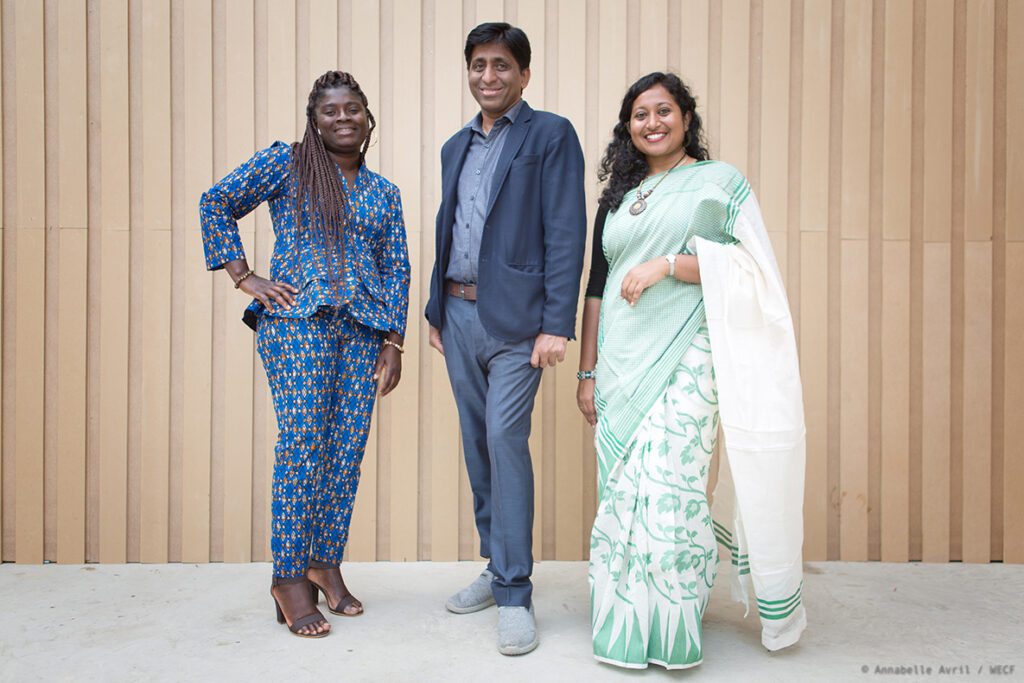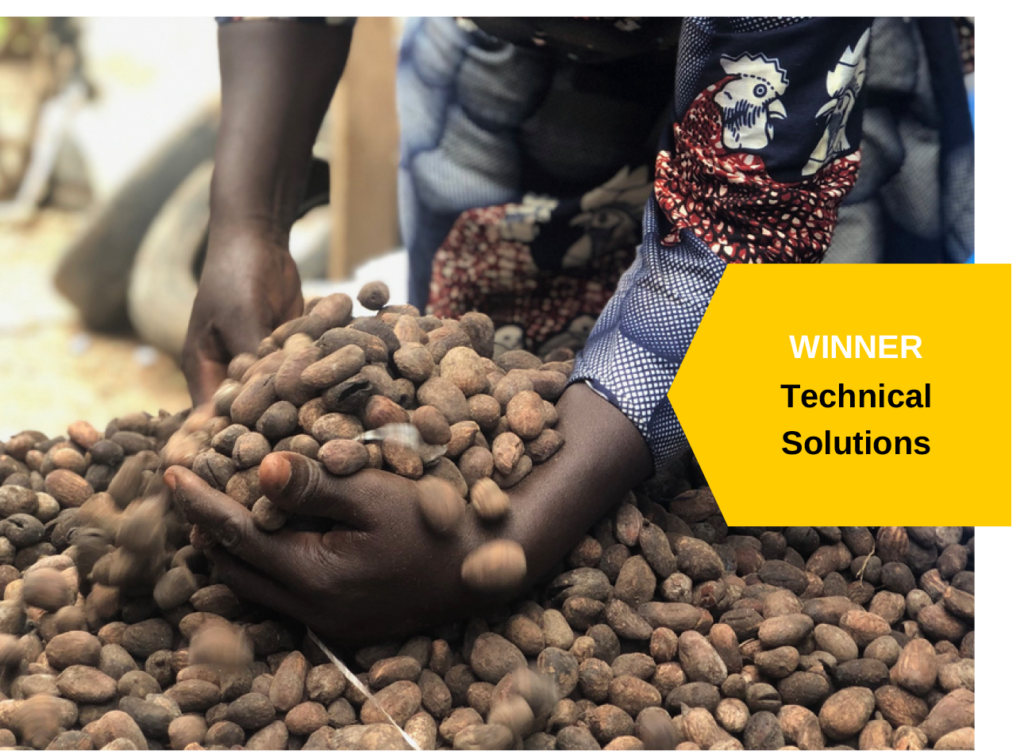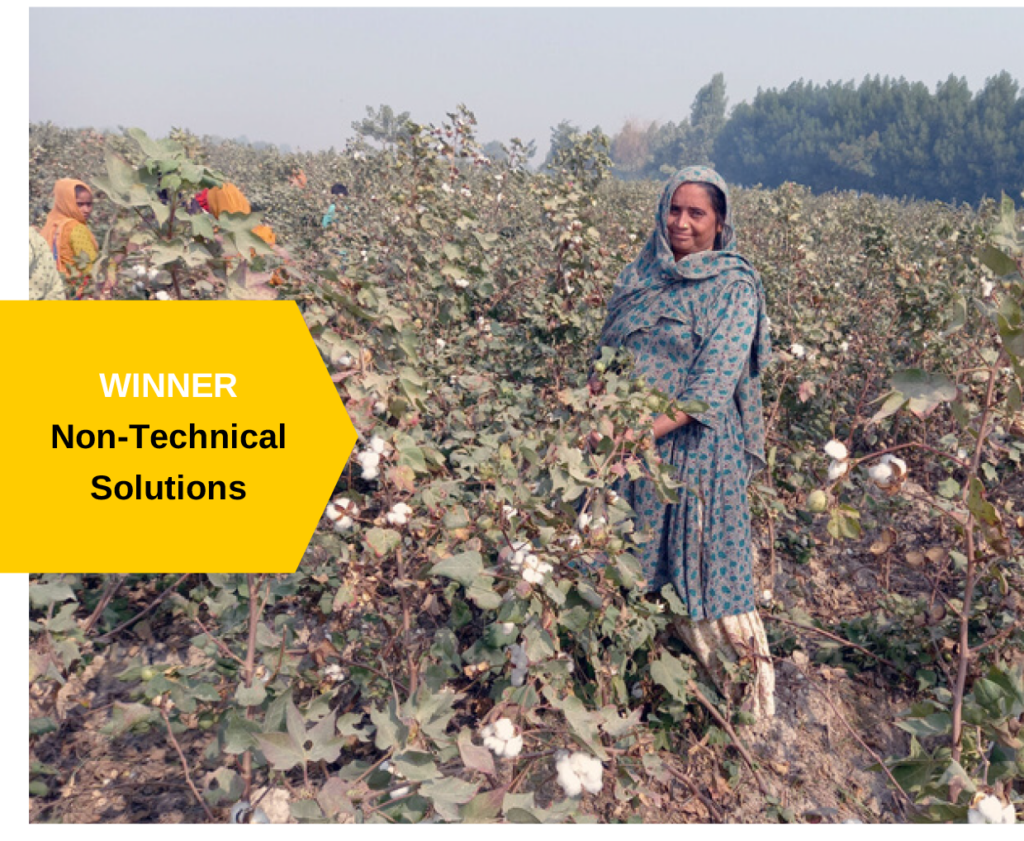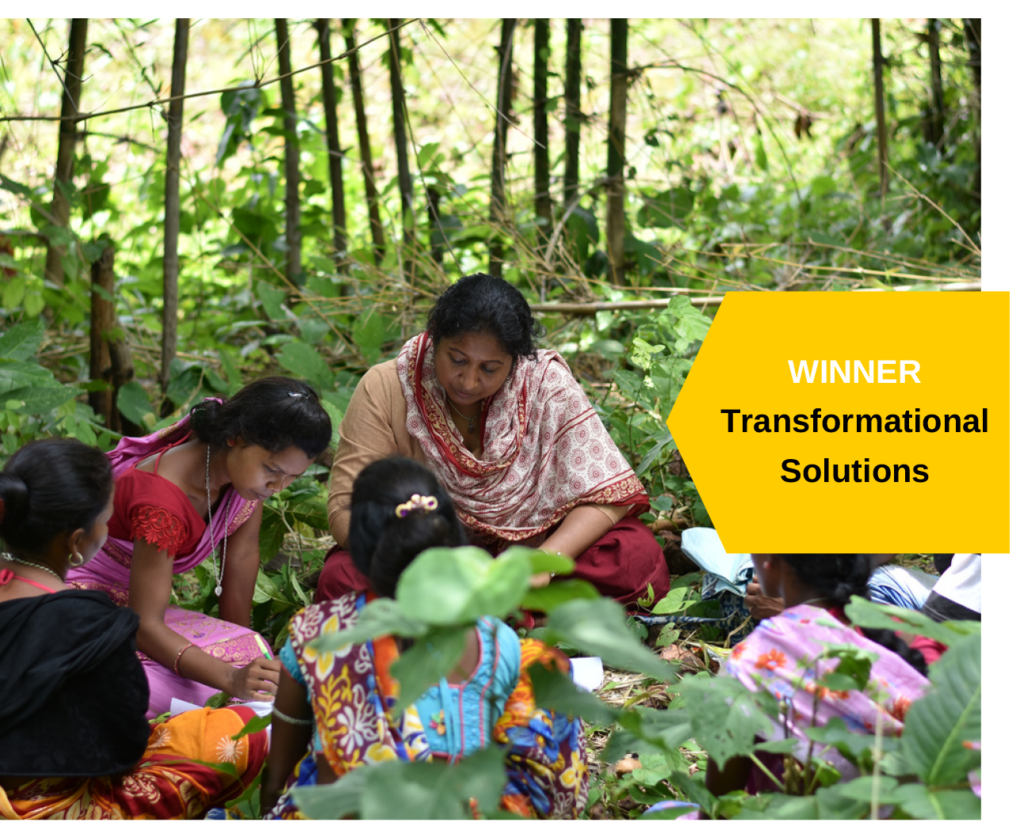On 14 November — Gender Day at COP27 — the annual Gender Just Climate Solutions Awards were given to three recipients from across the globe: Yokoumi from Togo (Technical Solutions); The Sindh Community Foundation in Pakistan (Non-technical Solutions), and the Keystone Foundation in India (Transformational Solutions).
These annual awards highlight the fact that ambitious climate action cannot be achieved without the voices of those at the frontlines of climate change, and they are representative of so many other locally led solutions to the climate crisis. With real commitments from governments and philanthropy – for example, in terms of finance and technology – these inclusive solutions can be upscaled to have a significant impact, not only locally but also on the global level.
Read the 2022 publication showcasing concrete examples on how to center gender equality and women’s rights in climate action:
Learn more about the 2022 GJCS awardees from Togo, Pakistan and India.
Women revolutionizing the sheabutter sector
Awardee: Delali Adjeje
Category: Technical Solutions
Project: Women revolutionizing the sheabutter sector
Organisation: Yokoumi
Country: Togo
By supporting the producers of shea butter in the Kelizio village of Togo to form a woman-led cooperative, Yokoumi is decarbonizing the shea butter sector and strengthening women’s economic autonomy at the same time.
Let’s look at the climate impacts: 50 shea butter producers will install a photovoltaic (or PV for short) solar plant to power their mill. Not only does the PV plant keep the mill running, but it will also provide electricity to the 1600 inhabitants of this isolated and underserved rural area.
Besides this PV solar plant, shea butter producers have also invested in individual improved stoves, further reducing their dependence on fossil fuels and biomass.
Advancing the labour rights of women cotton pickers in Pakistan
Winner: Mr. Javed Hussain
Category: Non-Technical Solutions
Project: Advancing the labour rights of women cotton pickers in Pakistan
Organisation: Sindh Community Foundation
Country: Pakistan
Women cotton pickers work in open fields exposed to the scorching sun, without shade — a situation that is becoming worse with climate change. With rising global temperatures, extreme droughts and extreme floods on the rise, the situation of women and girls, specifically those working in agriculture, will worsen.
The Sindh Community Foundation applies the “Feminist Participatory Action Research” approach to gather the priorities, needs and demands of women agriculture workers in order to jointly improve working conditions and health services in response to rising temperatures and extreme events.
Goals are to strengthen climate adaptation measures; establish a training program for 100 women agricultural workers on climate awareness, climate justice and labour rights protection; and ultimately to push policymakers to implement the Sindh Agriculture Women’s Protection Act of 2020.
Women Barefoot Ecologists bridge ancestral knowledge with modern science to protect their ecosystems
Winner: Ms. Bhavya George
Category: Transformational Solutions
Project: Women Barefoot Ecologists bridge ancestral knowledge with modern science to protect their ecosystems
Organisation: Keystone Foundation
Country: India
This project brings together two tools that are crucial in fighting climate change, but sometimes seem to speak different languages. By bridging the gap between ancestral knowledge and modern science, this gender just climate solution enables local women to protect their ecosystems.
Through this excellent project, 20 indigenous women from Tamil Nādu and Kerala, named Women Barefoot Ecologists, have strengthened their capacities to link Traditional Ecological Knowledge with modern scientific methods. By combining these tools, they are able to observe and monitor climate impacts on their forests, rivers, and farms.
Village elders lead the practical observations of the state of their environment. By collecting this data and analyzing it, local women groups are able to lead climate and conservation actions in their communities.
These actions include the launch of forest nurseries, community kitchen gardens, water source protection initiatives, and soon to come: a seed keeping social enterprise.
About The Gender Just Climate Solutions Awards
The solutions to a sustainable climate resilience and inclusive world already exist on the ground. To make them visible, the Gender Just Climate Solutions Awards program – begun in 2015 with the establishment of the Paris Agreement – organizes a high-level awards celebration during the annual global climate negotiations. The Awards program brings together environmental defenders from around the world who use a gender equality and women’s rights approach when implementing the Paris Agreement to fight our climate crisis. Jointly with civil society and UN climate technology networks, it provides mentoring and support to bring these practices to scale. View our full database of Gender Just Climate Solutions here.



